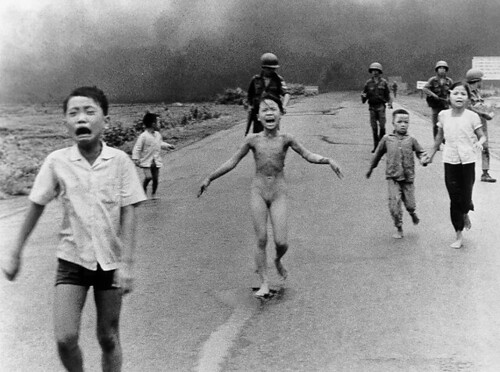10 Things John Wayne Would Never Do
5 Questions About: Generation Y
The 10 Greatest Drunks in Cinema History
Signs That the U.S. is Rome
How Hollywood Ruined an Epic Poem
5 Questions About: Linda Strawberry
Is Indiana Jones a Misogynist?
Poem: In the Dark Woods
DP Network's Magical Mystery Tour #2
Literary Criticism
Fantastically Bad Cinema
Essays
Under God's Right Arm
June 2006
July 2006
August 2006
September 2006
October 2006
November 2006
December 2006
January 2007
February 2007
March 2007
April 2007
May 2007
June 2007
July 2007
August 2007
September 2007
October 2007
November 2007
December 2007
January 2008
February 2008
March 2008
April 2008
May 2008
June 2008
July 2008
August 2008
September 2008
October 2008
November 2008
December 2008
January 2009
February 2009
March 2009
Alcoholic Poet
Baby Got Books
Beaman's World
BiblioAddict
Biblio Brat
Bill Crider's Pop Cultural Magazine
The Bleeding Tree
Blog Cabins: Movie Reviews
A Book Blogger's Diary
BookClover
Bookgasm
Bookgirl's Nightstand
Books I Done Read
Book Stack
The Book Trib
Cold Hard Football Facts
Creator of Circumstance
D-Movie Critic
The Dark Phantom Review
The Dark Sublime
Darque Reviews
Dave's Movie Reviews
Dane of War
David H. Schleicher
Devourer of Books
A Dribble of Ink
The Drunken Severed Head
Editorial Ass
Emerging Emma
Enter the Octopus
Fatally Yours
Flickhead
The Genre Files
The Gravel Pit
Gravetapping
Hello! Yoshi
HighTalk
Highway 62
The Horrors Of It All
In No Particular Order
It's A Blog Eat Blog World
Killer Kittens From Beyond the Grave
The Lair of the Evil DM
Loose Leafs From a Commonplace
Lost in the Frame
Little Black Duck
Madam Miaow Says
McSweeney's
Metaxucafe
Mike Snider on Poetry
The Millions
Moon in the Gutter
New Movie Cynics Reviews
Naked Without Books
A Newbie's Guide to Publishing
New & Improved Ed Gorman
9 to 5 Poet
No Smoking in the Skull Cave
Orpheus Sings the Guitar Electric
Polly Frost's Blog
Pop Sensation
Raincoaster
R.A. Salvatore
Reading is My Superpower
Richard Gibson
SciFi Chick
She Is Too Fond Of Books
The Short Review
Small Crimes
So Many Books
The Soulless Machine Review
Sunset Gun
That Shakesperherian Rag
Thorne's World
The Toasted Scrimitar
This Distracted Globe
Tomb It May Concern
2 Blowhards
Under God's Right Arm
A Variety of Words
The Vault of Horrr
Ward 6
When the Dead Walk the Earth
The World in the Satin Bag
Zoe's Fantasy
Zombo's Closet of Horror
Bookaholic Blogring
Power By Ringsurf
An Interview with Professor Christian G. Appy About the Legacy of the Vietnam War
(Christian G. Appy is a professor of history at the
DaRK PaRTY: Was the
Christian:
chose to prolong the war anyway. No president was willing to risk being called a loser. Clearly the
Kissinger tried to sugar-coat the result by getting out before the final
collapse).
DP: What were the major differences about the Vietnam War from conflicts like World War II and the Korean War?
Christian: Word War II was, in my view, a just war against real and dangerous threats. It had overwhelming support at home and by allies abroad. And it achieved its objectives. However, the means used – firebombing and nuclear weapons – can and should be evaluated separately from the justice of the cause.
Whether the U.S. should have intervened in Korea is much-debated, and the U.S.-backed government of South Korea was clearly dictatorial, but there was sufficient South Korean opposition to North Korea to allow a major U.S. intervention (at enormous costs on all sides) to preserve a permanent, non-Communist South Korea.
In
and reunify the country. 
DP: There a sense among some quarters that the
Christian: The idea that we didn’t fight to win in
the only meaningful definition of victory in
DP: Why did it the
Christian: Kennedy, LBJ, and Nixon all believed the loss of
war and then pulled out of the 1968 election, and Nixon continued the war until after his re-election.
DP: Are there parallels between
Christian:
5 Questions about the Pilgrims
5 Questions about the Great War
Labels: 5 Questions, Christian G. Appy, History, interview, Vietnam
 StumbleUpon |
StumbleUpon |
 del.icio.us |
del.icio.us |
 Technorati |
Technorati |

This work is licensed under a Creative Commons Attribution-No Derivative Works 3.0 License.
The Template is generated via PsycHo and is Licensed.





